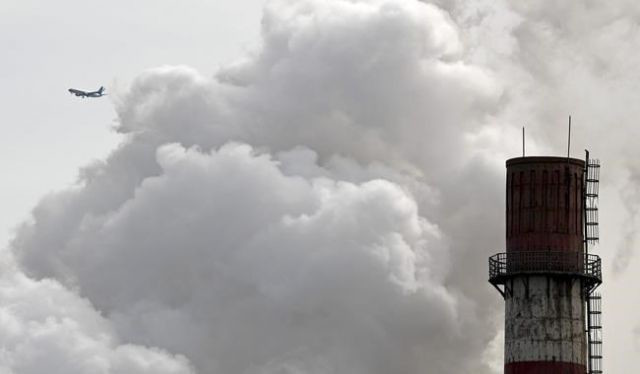After two weeks of bruising negotiations, officials from almost 200 countries agreed Saturday on universal, transparent rules that will govern efforts to cut emissions and curb global warming. Fierce disagreements on two other climate issues were kicked down the road for a year to help bridge a chasm of opinions on the best solutions.
The deal agreed upon at U.N. climate talks in Poland enables countries to put into action the principles in the 2015 Paris climate accord.
But to the frustration of environmental activists and some countries who were urging more ambitious climate goals, negotiators delayed decisions on two key issues until next year in an effort to get a deal on them.
“Through this package, you have made a thousand little steps forward together,” said Michal Kurtyka, a senior Polish official chairing the talks.
He said while each individual country would likely find some parts of the agreement it didn’t like, efforts had been made to balance the interests of all parties.
“We will all have to give in order to gain,” he said. “We will all have to be courageous to look into the future and make yet another step for the sake of humanity.”
The talks in Poland took place against a backdrop of growing concern among scientists that global warming on Earth is proceeding faster than governments are responding to it. Last month, a study found that global warming will worsen disasters such as the deadly California wildfires and the powerful hurricanes that have hit the United States this year.
And a recent report by the Intergovernmental Panel on Climate Change, or IPCC, concluded that while it’s possible to cap global warming at 1.5 degrees Celsius (2.7 degrees Fahrenheit) by the end of the century compared to pre-industrial times, this would require a dramatic overhaul of the global economy, including a shift away from fossil fuels.
Alarmed by efforts to include this in the final text of the meeting, the oil-exporting nations of the U.S., Russia, Saudi Arabia and Kuwait blocked an endorsement of the IPCC report mid-way through this month’s talks in the Polish city of Katowice. That prompted an uproar from vulnerable countries like small island nations and environmental groups.
The final text at the U.N. talks omits a previous reference to specific reductions in greenhouse gas emissions by 2030, and merely welcomes the “timely completion” of the IPCC report, not its conclusions.
Last-minute snags forced negotiators in Katowice to go into extra time, after Friday’s scheduled end of the conference had passed without a deal.
One major sticking point was how to create a functioning market in carbon credits. Economists believe that an international trading system could be an effective way to drive down greenhouse gas emissions and raise large amounts of money for measures to curb global warming.
But Brazil wanted to keep the piles of carbon credits it had amassed under an old system that developed countries say wasn’t credible or transparent.
Among those that pushed back hardest was the United States, despite President Donald Trump’s decision to pull out of the Paris climate accord and promote the use of coal.
“Overall, the U.S. role here has been somewhat schizophrenic — pushing coal and dissing science on the one hand, but also working hard in the room for strong transparency rules,” said Elliot Diringer of the Center for Climate and Energy Solutions, a Washington think-tank .
When it came to closing potential loopholes that could allow countries to dodge their commitments to cut emissions, “the U.S. pushed harder than nearly anyone else for transparency rules that put all countries under the same system, and it’s largely succeeded.”

